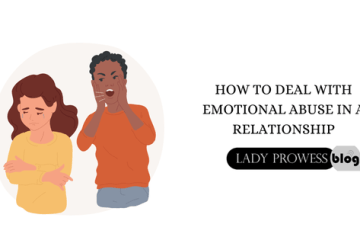Relationship Communication Tips
Discover valuable tips and strategies to enhance your relationship communication skills, fostering understanding, empathy, and connection with your loved ones. Improve your ability to express yourself, listen actively, and navigate conflicts, leading to happier and more fulfilling relationships.
We’ve all been there – that moment when we say the wrong thing and our partner takes it the wrong way. It can be so frustrating trying to communicate with someone we love!
In this article, we’ll give you tips on improving communication in your relationship. Following these tips can build a stronger foundation for your relationship and have healthy, productive conversations with your partner.
Read More: The Impacts of Technology on modern relationships
The first step is to learn how to listen. Too often, we’re so focused on what we’ll say next that we don’t listen to our partner. Instead, we just wait for our turn to talk.
Next, try not to judge or criticize your partner. We all have our faults, and it’s important to be accepting of them.
Identify Miscommunication
Miscommunication can often be challenging in relationships, but understanding its root cause is crucial for effective communication. Here are some steps you can take to identify and address miscommunication:
Find the Root Cause of Miscommunication:
- Reflect on the recent conversations or incidents where the miscommunication occurred.
- Look for patterns or triggers that may contribute to misunderstandings.
- Consider individual communication styles and preferences that may differ between you and your partner.
Speak, Listen, and Reflect:
- Start by expressing your thoughts and feelings using assertive communication.
- Practice active listening, giving your full attention to your partner and seeking clarification when needed.
- Reflect on your contributions to miscommunication and be open to feedback from your partner.
Respond Appropriately
How we respond to each other’s communication is crucial in any relationship. It can either foster healthy dialogue or escalate tensions. Here are some tips on how to respond appropriately in your relationship:
Don’t Respond in Anger:
When emotions run high, it’s easy to react impulsively out of anger. Instead, take a moment to pause and collect your thoughts before responding. Remember that responding in anger can often lead to hurtful exchanges and misunderstandings. You can promote open and productive communication by taking a breath and responding calmly.
Use “I” Statements:
Framing your thoughts or concerns with “I” statements can help convey your feelings without sounding accusatory. For example, instead of saying, “You never listen to me,” try saying, “I feel unheard when I share my thoughts.” This approach promotes understanding and reduces defensiveness in your partner.
Validate and Empathize:
Effective communication involves active listening and acknowledging your partner’s feelings. Validate their emotions by saying things like, “I can understand why you feel that way” or “It makes sense that you’re upset.” Empathizing with their perspective creates a safe space for open and honest communication.
Seek Clarity:
To avoid misunderstandings, ask clarifying questions if something your partner says is unclear. Restating their words or confirming your understanding can help prevent assumptions and promote accurate communication. For instance, you can say, “Just to make sure I understand, are you saying…?”
Set Boundaries
Setting boundaries in a relationship is crucial for maintaining open and healthy communication. When partners have clear boundaries, it helps create a safe and respectful space for both individuals to express their needs and concerns. Here are some strategies for setting boundaries:
Respect Your Partner’s Space:
- Understand that everyone needs personal space and time for themselves. Respect your partner’s need for alone time and give them the freedom to pursue their interests and hobbies.
- Avoid being overly controlling or possessive. Trust and respect are key components of a strong relationship.
Ask for What You Need:
- Clearly communicate your needs and expectations to your partner. Be open and honest about what you require in the relationship, whether it’s emotional support, alone time, or specific acts of kindness.
- Encourage your partner to do the same. Effective communication involves a mutual understanding of each other’s needs.
“Boundaries are the distance at which I can love you and me simultaneously.” – Prentis Hemphill
“Boundaries don’t keep other people out, they fence you in. Life is messy, that’s how we’re made. So you can waste your life drawing lines. Or you can live your life crossing them.” – Shonda Rhimes
Talk Regularly
Effective communication is the foundation of a healthy and thriving relationship. One important aspect of communication is talking regularly. Regularly engaging in conversation with your partner can strengthen your bond and ensure that both of you are on the same page. Here are some tips to make your regular conversations more meaningful:
- Schedule Regular Check-Ins: Set aside dedicated time to check in with each other. This can be a weekly or monthly conversation where you discuss your individual goals, challenges, and how you can support each other. Making this a regular habit creates a safe space for open and honest communication.
- Have Fun Together: Communication can be something other than serious. Make an effort to incorporate fun and lighthearted conversations into your routine. Share jokes, funny stories, or talk about your shared interests and hobbies. This helps to create a sense of joy and connection in your relationship.
- Practice Active Listening: When your partner is speaking, give them your full attention. Put away distractions and make eye contact. Show that you are engaged in what they are saying by nodding, summarizing their points, and asking follow-up questions. Active listening fosters understanding and shows your partner that they are valued.
- Be Vulnerable: Share your thoughts, feelings, and experiences authentically. Express your wants, needs, and concerns openly, and encourage your partner to do the same. Creating an environment where both of you feel safe to be vulnerable will deepen your emotional connection.
- Use Positive Reinforcement: Throughout your conversations, remember to show appreciation for your partner. Express gratitude for their efforts, acknowledge their strengths, and praise their accomplishments. This fosters a positive atmosphere and reinforces the importance of healthy communication.
Appreciate Each Other
Expressing gratitude and showing affection in a relationship is crucial for maintaining a strong connection. Here are some ways to appreciate each other:
- Express Gratitude: Take the time to express your appreciation for your partner’s efforts, both big and small. Acknowledge and thank them for the things they do to make your life better. It could be as simple as saying, “Thank you for making dinner tonight, I really enjoyed it.” Small gestures of appreciation can go a long way in creating a positive and loving atmosphere.
- Show Affection: Physical touch, such as holding hands, hugging, or kissing, can help strengthen the bond between you and your partner. Don’t underestimate the power of a loving touch. Remember to show affection in both intimate and non-intimate moments. A warm embrace or a gentle touch on the arm can communicate love and care.
Conclusion
One of the most important aspects of any relationship is communication. If you and your partner are not able to communicate effectively, you are likely to have problems in your relationship. Here are some tips that can help you improve your communication skills:
- Set clear boundaries. If you want to have a healthy relationship, it is important to set boundaries. Be clear about what you are and are not willing to do. This will help you to avoid conflicts.
- Don’t take things personally. If you feel that your partner is not communicating with you effectively, don’t take it personally. This is not about you. It is about them.
- Try to be understanding. If your partner is not communicating with you, it is likely because they are feeling upset or frustrated. Try to be understanding. This will help to improve the relationship.



0 Comments